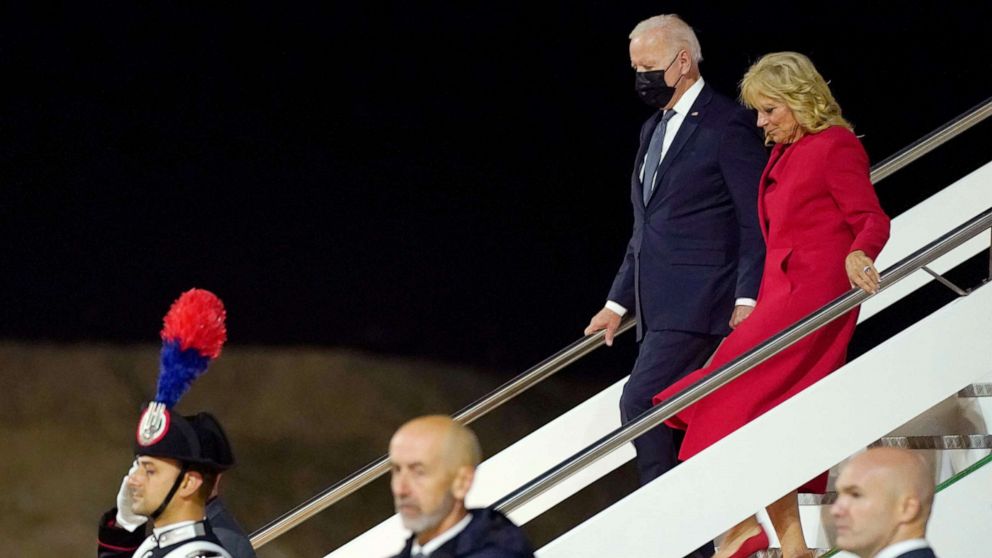Biden lands overseas without deal after House delays infrastructure vote
House Democratic leaders have pulled the plug on a vote to the Senate-passed $1.1 trillion bipartisan infrastructure bill this week, just as President Joe Biden arrives in Rome without a deal in hand, and as House Speaker Nancy Pelosi misses her self-imposed deadline to have a vote on the bill by the end of the month.
"As you know by now, the House will postpone the vote on BIF," Pelosi said in a new Dear Colleague letter late Thursday. "The good news is that most Members who were not prepared for a yes vote today have expressed their commitment to support the BIF."
House progressives, whose votes are needed for passage of Biden's domestic agenda, have insisted they need firm commitment from holdout moderate Sens. Joe Manchin, D-W.Va., and Kyrsten Sinema, D-Ariz., to the social spending package that the White House proposed on Thursday before they pledge their votes to the Senate-passed infrastructure bill.
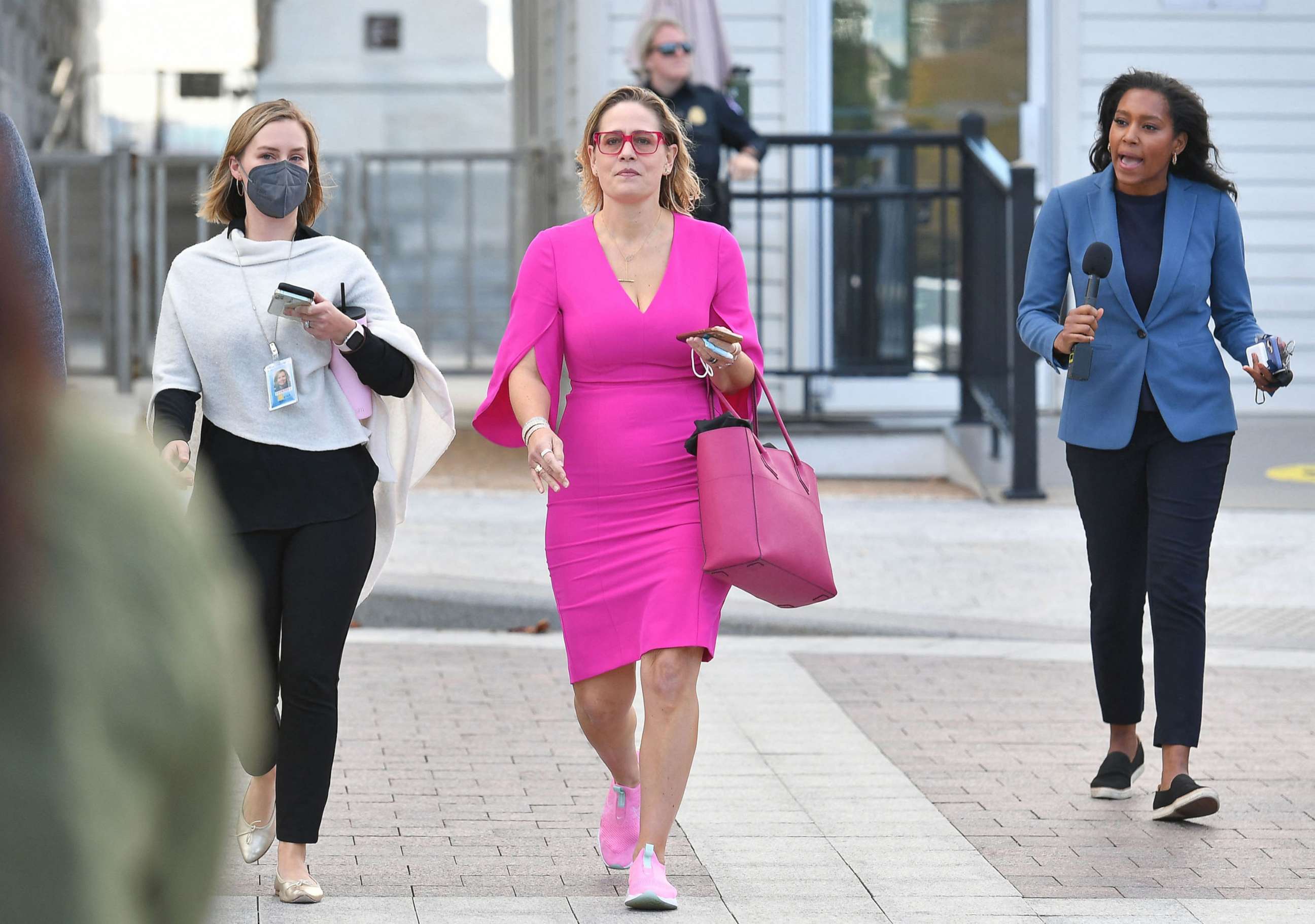
The Progressive Caucus late Thursday voted internally to endorse Biden's proposed framework -- but members indicated they are holding the line until the social spending bill is ready for a vote.
"There are too many no votes for the BIF to pass today," Chair of the Congressional Progressive Caucus Pramila Jayapal, D-Wash., told reporters.
While a form of transportation funding was set to expire Sunday -- one of the reasons Pelosi hoped to tie the bill's passage to that date -- the Senate late Thursday unanimously approved a temporary funding measure passed earlier by the House with unanimous consent to punt the issue of transportation funding to Dec. 3.
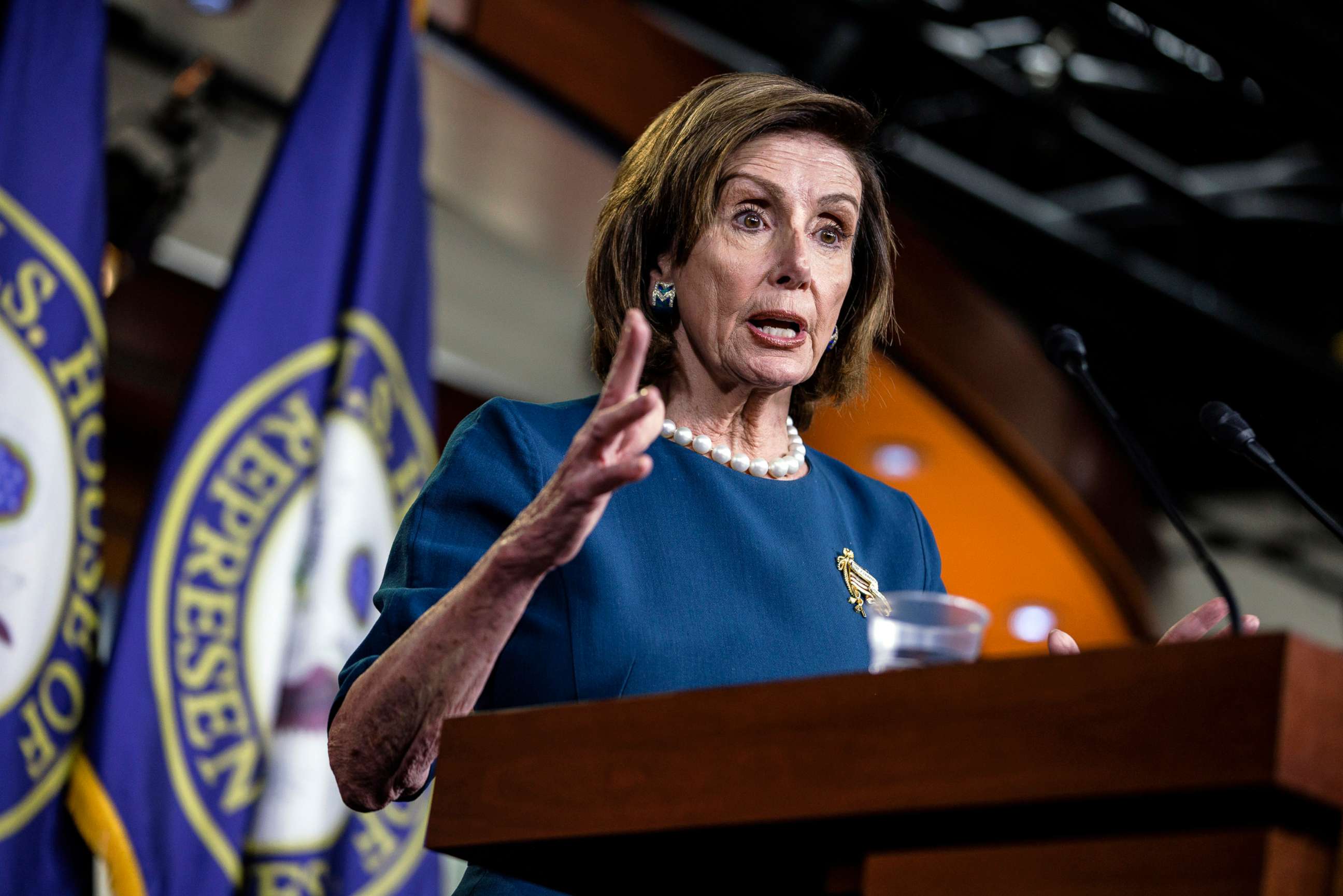
This sets up a massive fiscal cliff for the federal government in the first week of December, as that's also when government funding is set to expire and when the Treasury Department could face defaulting on its loans for the first time ever. Considering progressives' demands, the larger social spending package the White House proposed Thursday may have to wait until around the same time.
Pelosi warned House Democrats in an closed door meeting earlier in the day not to "embarrass" the president by voting down the infrastructure bill as he heads overseas, a comment first reported by CNN that a senior Capitol Hill official confirmed to ABC News.
But as the president was about to land in Europe with no deal in hand, White House press secretary Jen Psaki released a rosy statement, attempting to portray the current state of affairs as positive.
Echoing the president's earlier remarks, Psaki said the White House is "confident that soon we'll pass both the Build Back Better Act and the Bipartisan Infrastructure Deal" but offered no specific timeline for when the White House wants to see a vote.
In a last-minute push before taking the world stage, and after months of torturous negotiations, Biden announced a "framework" of his economic plan in remarks earlier Thursday, in an effort to get all Democrats behind his social spending and climate policy agenda.
"No one got everything they wanted, including me, but that's what compromise is. That's consensus. And that's what I ran on," Biden said from the White House East Room, after delaying his big trip by hours.
Already having lobbied lawmakers of his own party in person on Capitol Hill, Bidne put pressure on House progressives to come together to support what he pitched as a "fundamental game-changer," laying out the details of the $1.75 trillion package.
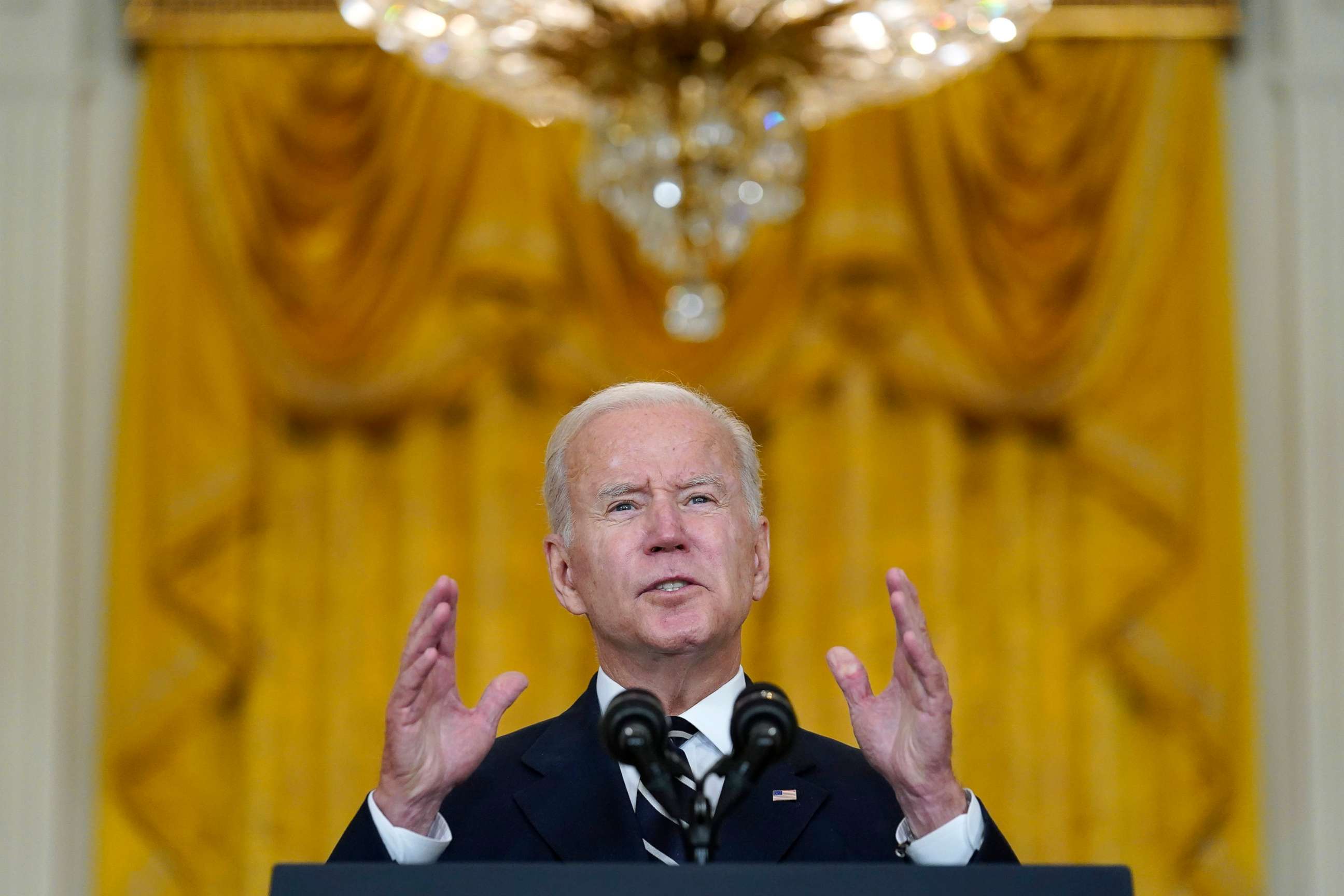
"I ran for president saying it was time to reduce the burden on the middle class to rebuild the backbone of this nation working people in the middle class," Biden said from the White House, using the presidential bully pulpit. It couldn't have been any clearer -- the very moment I announced my candidacy. That's why I wrote these bills in the first place and took them to the people."
"This agenda that's in these bills is what 81 million Americans voted for. More people voted than any time in American history," Biden said. "Their voices deserve to be heard. Not denied, or worse, ignored."
But as the day went on it became clear that not all Democrats, especially progressives, were on board.
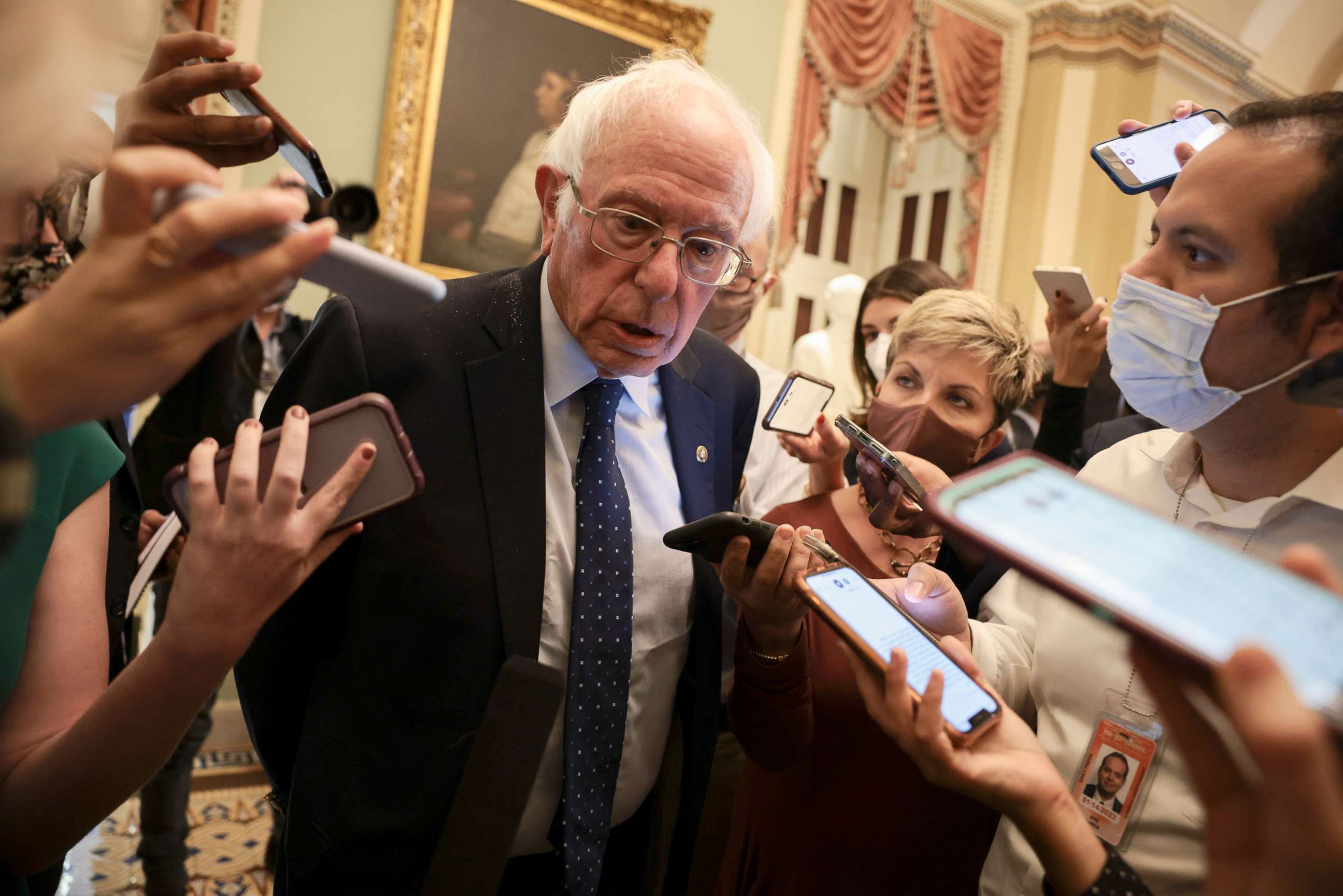
Behind closed doors, Pelosi was generally frustrated by the group, a source told ABC News, as they assured her the bipartisan infrastructure bill wouldn't get a vote in the House on Thursday, as the speaker had hoped, even after admitting to her own concessions in the larger social spending package Democrats have tied together.
Pelosi appeared upbeat in an earlier press conference, when announcing the roughly 2,500-page social spending proposal was headed for markup -- but did not commit to a vote on the bipartisan package on Thursday. She dodged when asked by ABC News Congressional Correspondent Rachel Scott whether she trusts Manchin and Sinema, who have been holdouts on provisions most Democrats support.
"I trust the president of the United States," she said. "And again, the text is out there if they have some -- anybody, any senator, any House member -- have some suggestions about where their comfort level is or their dismay might be -- then we welcome that, but I trust the president of the United States."
Despite progressives' demands, paid family leave is out of the framework -- a major blow to progressive but part of an effort to lower the cost of the package in hopes that holdouts Manchin and Sinema would pledge their support.
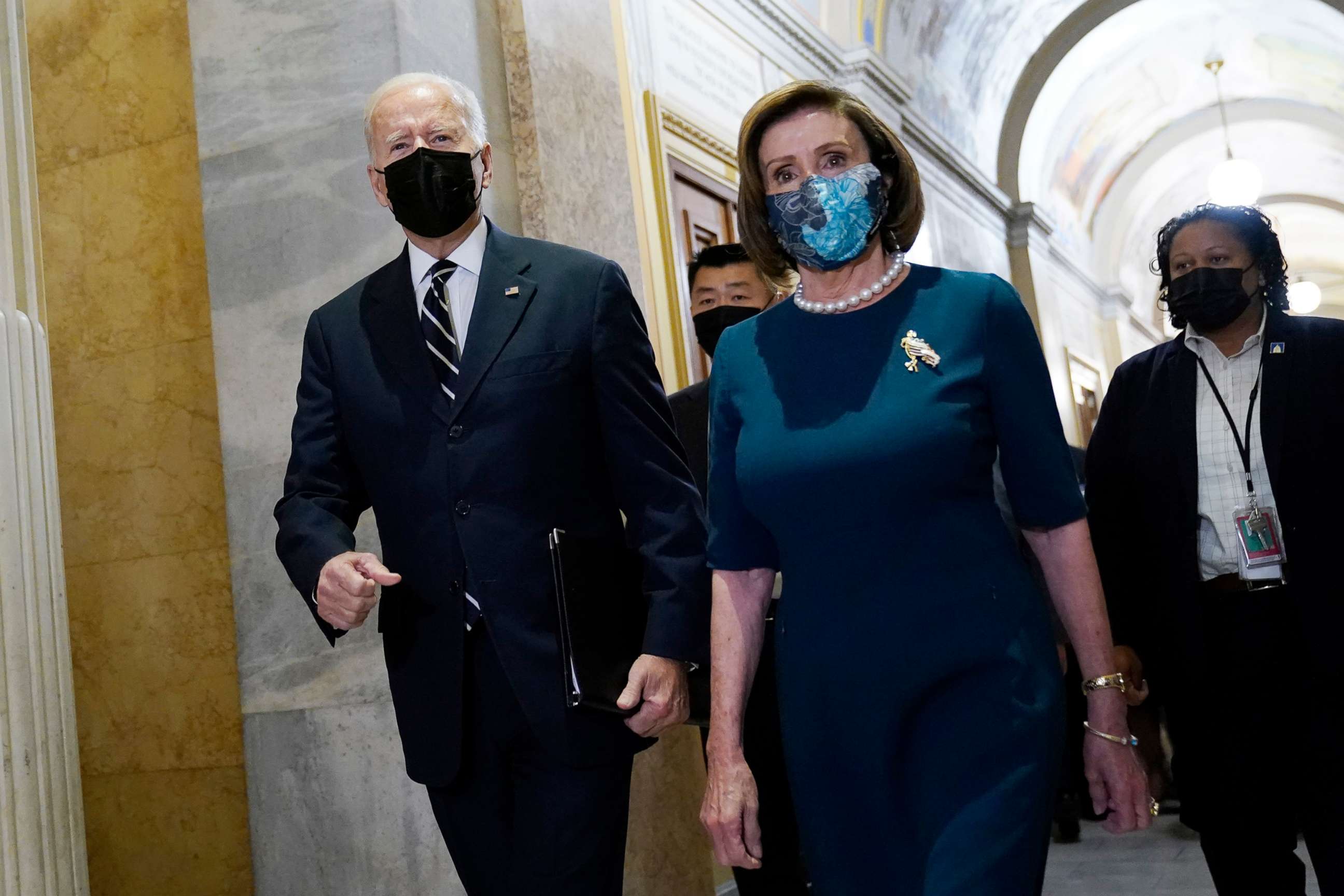
Sinema signaled to so in a statement hailing the framework as "significant progress" -- but it didn't mention the word "deal." Manchin, leaving the Hill on Thursday, said, "We negotiated a good number," appearing to affirm his agreement to a roughly $1.75 trillion plan.
But Sen. Bernie Sanders, I-Vt., who wields influence with the House progressive caucus, actively encouraged progressive colleagues in the House to hold out and oppose a vote on the bipartisan infrastructure package until they agree to legislative text to the larger social spending package and get firm assurances from all 50 senators that they support it.
"I want to see it improved," Sanders told reporters. He noted the significance of Biden's proposal but said "it has some major gaps in it."
In his speech from the White House, Biden promoted the framework's provisions on climate policy, another progressive priority, ahead of the COP26 U.N. global climate summit, saying even his scaled-back plan will "grow the domestic industries, create good-paying union jobs" and address "long-standing environmental injustices."
"We'll build up our resilience for the next storm, drought, wildfires and hurricanes that indicate a blinking code red for America and the world," he said, noting natural disasters have cost $99 billion in damage to the U.S. in the last several years. For those who argue his plan costs too much, he asked: "We're not spending any money to deal with this?"
He said his plan "would continue cutting taxes for the middle class" but raise them on the nation's wealthiest Americans and corporations, whom Democrats argue haven't been paying their fair share.
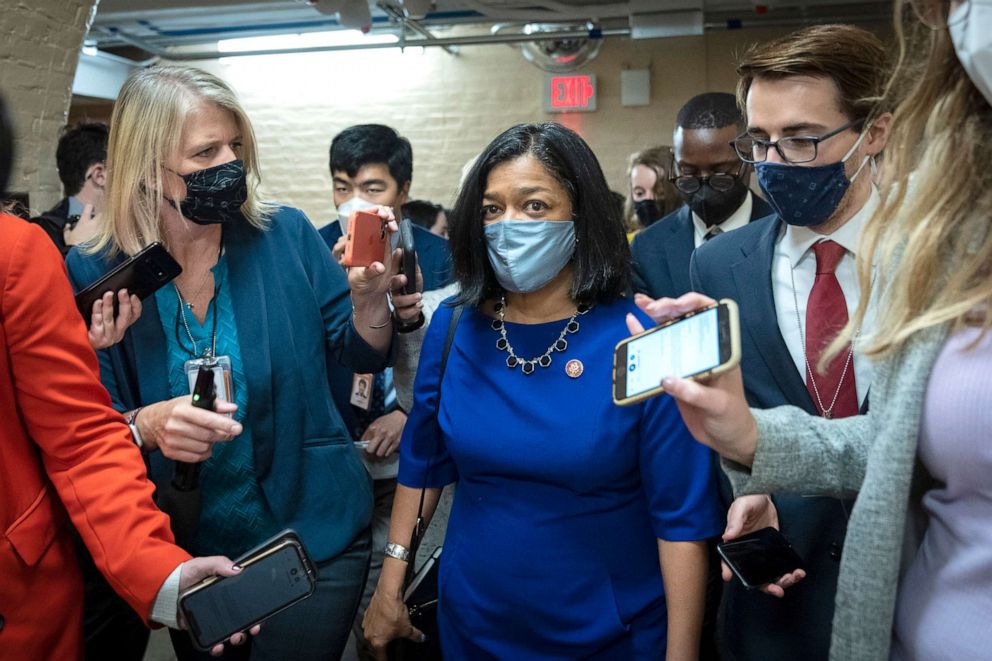
The president can't afford to lose a single vote in the Senate and only three votes in the House. He delayed his foreign trip on Thursday to head to the Hill and lobby members of his own party to back the legislation he campaigned on.
When reporters shouted, "Do you think you have enough of a framework to get progressives to support the infrastructure bill?" Biden responded "Yes."
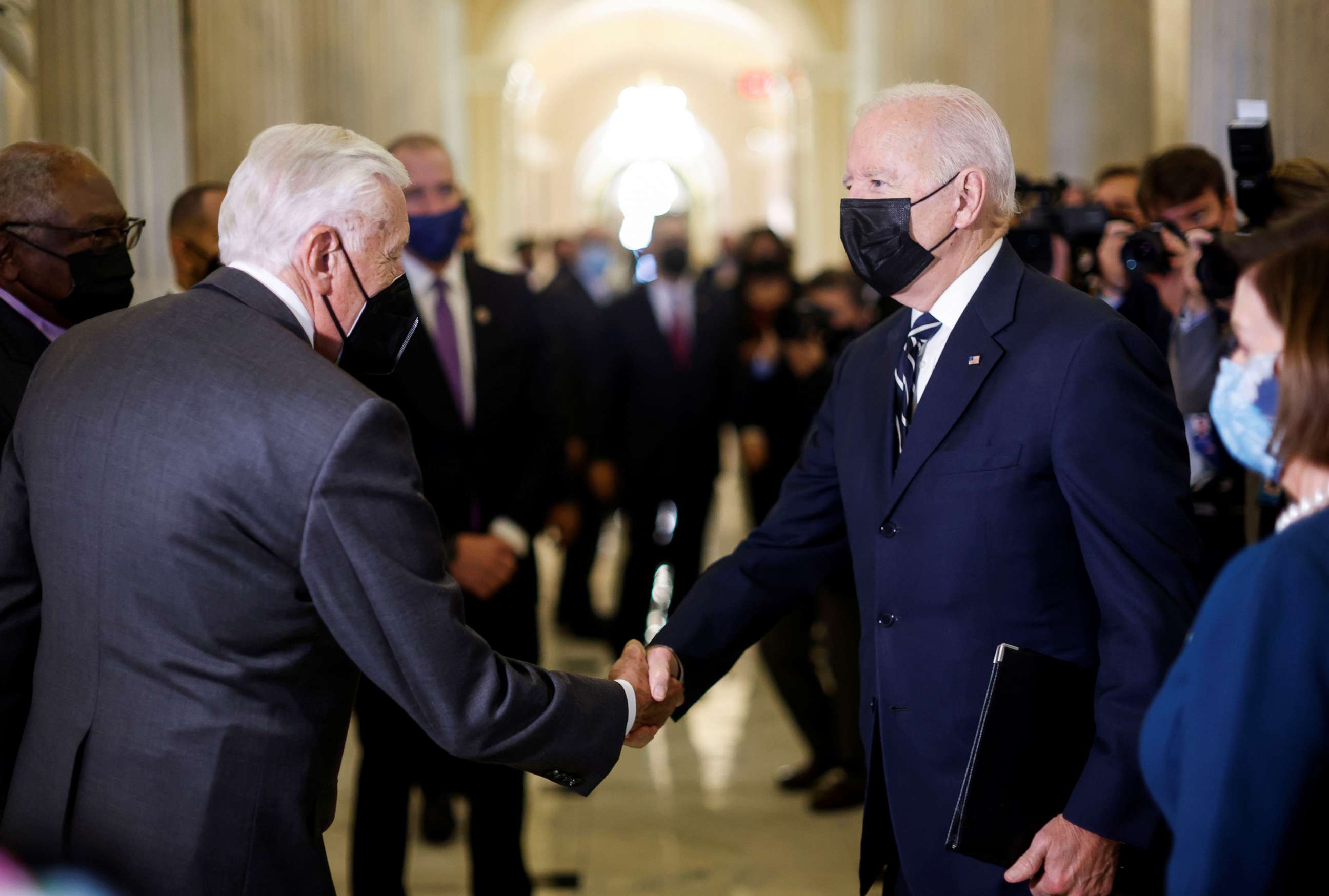
The White House said "the framework will save most American families more than half of their spending on child care, deliver two years of free preschool for every 3- and 4-year-old in America, give more than 35 million families a major tax cut by extending the expanded Child Tax Credit, and expand access to high-quality home care for older Americans and people with disabilities."
The Child Tax Credit expansion, which Biden proposed extending until 2025, would now be only until the end of 2022. Paid family and medical leave, which Biden had originally proposed to be 12 weeks and then scaled back to four weeks, appeared to have been dropped altogether after Manchin objected, despite progressives fighting back. Two free years of community college that Biden had promised is not included.
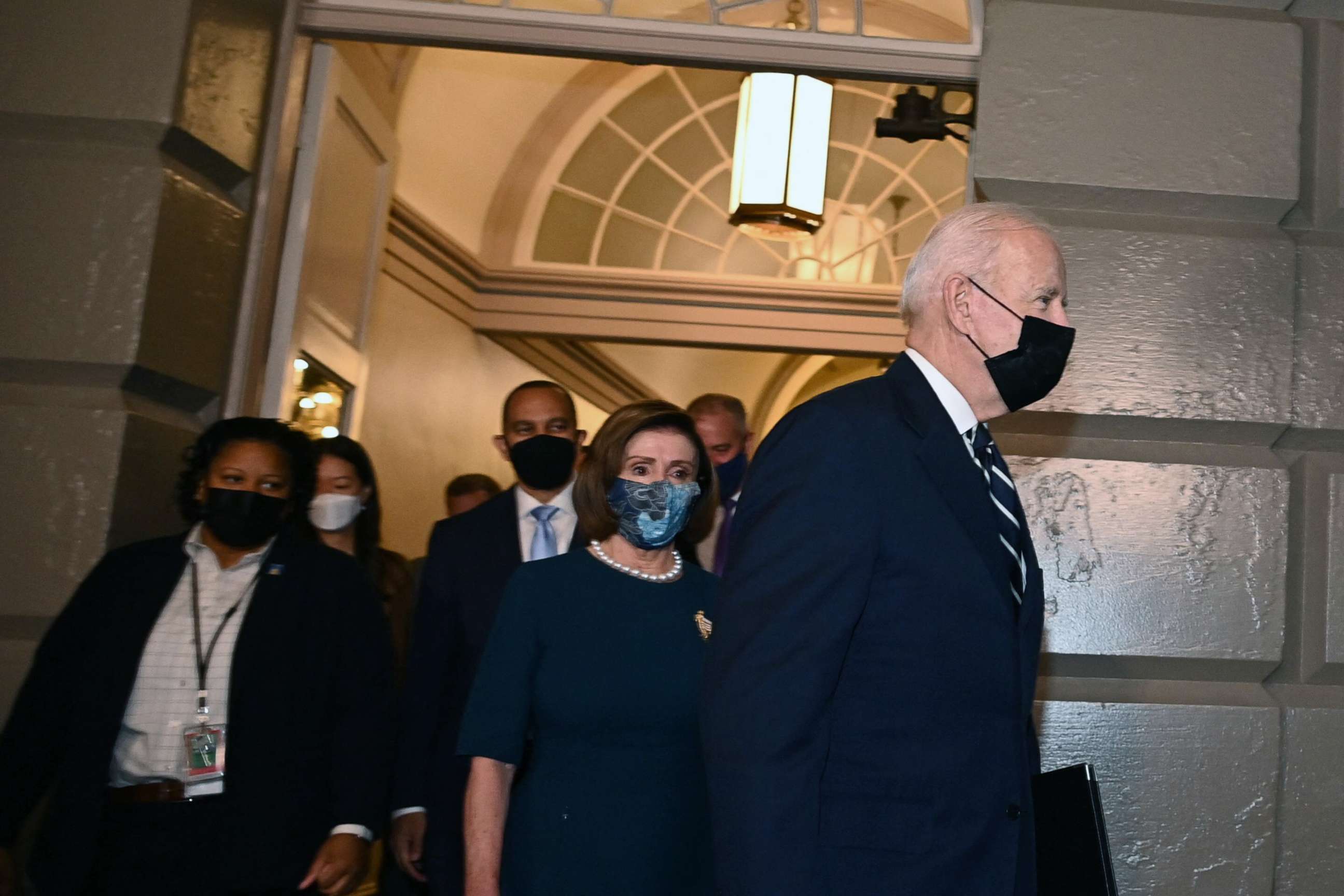
The White House claims the fully paid for framework represents "the largest effort to combat climate change in American history" and "the biggest expansion of affordable health care coverage in a decade," saying it would "reduce premiums for more than 9 million Americans by extending the expanded Premium Tax Credit, deliver health care coverage to up to 4 million uninsured people in states that have locked them out of Medicaid, and help older Americans access affordable hearing care by expanding Medicare."
An expansion of Medicare to cover dental and vision, a top priority of Sanders', is not in the framework.
